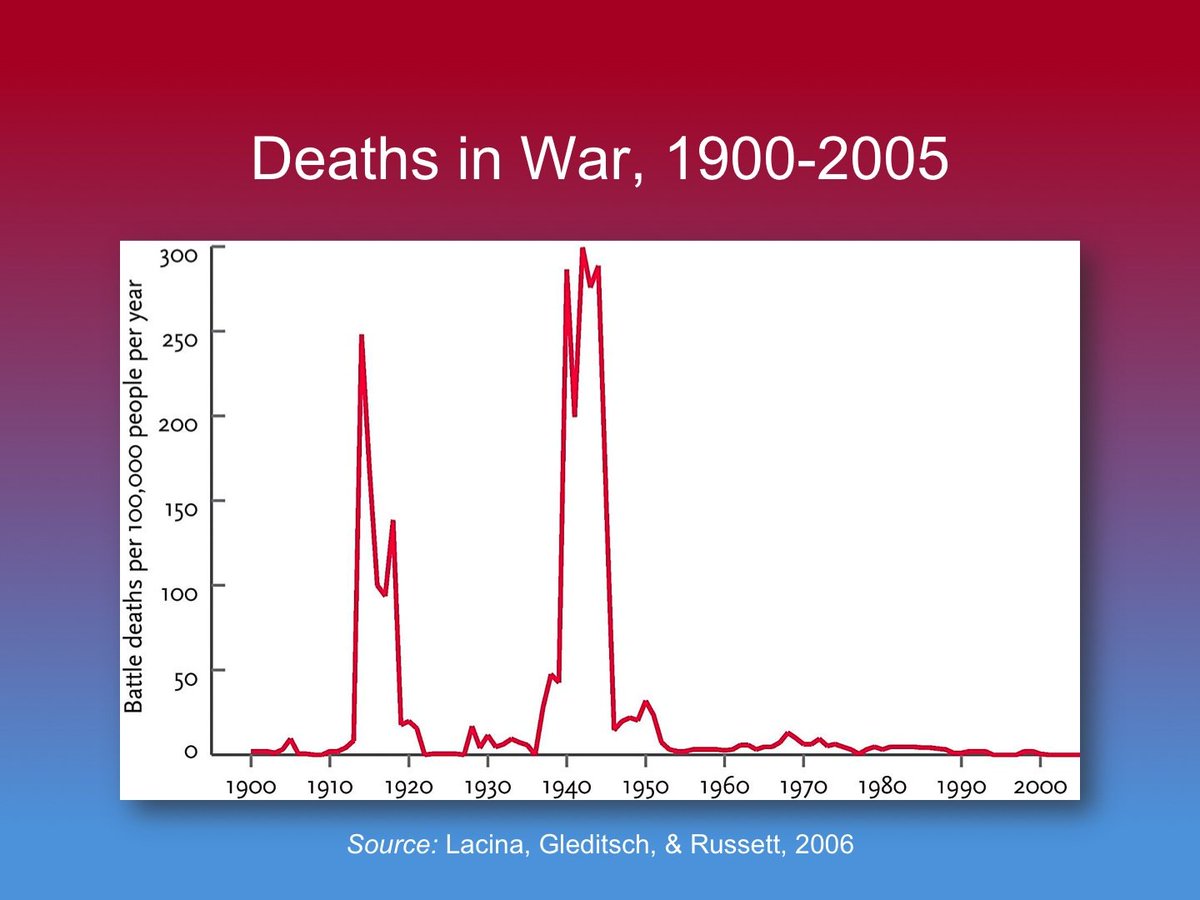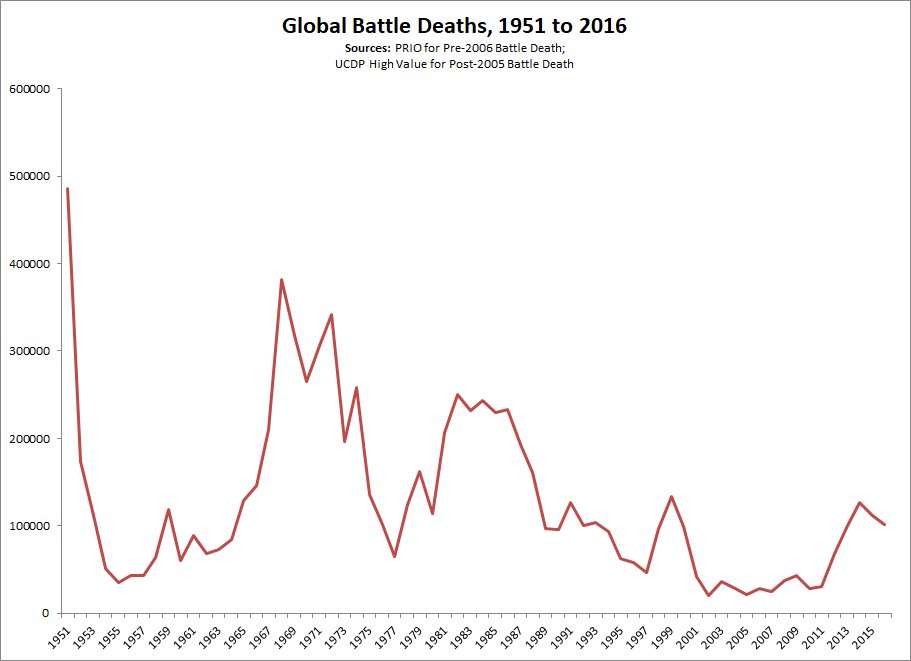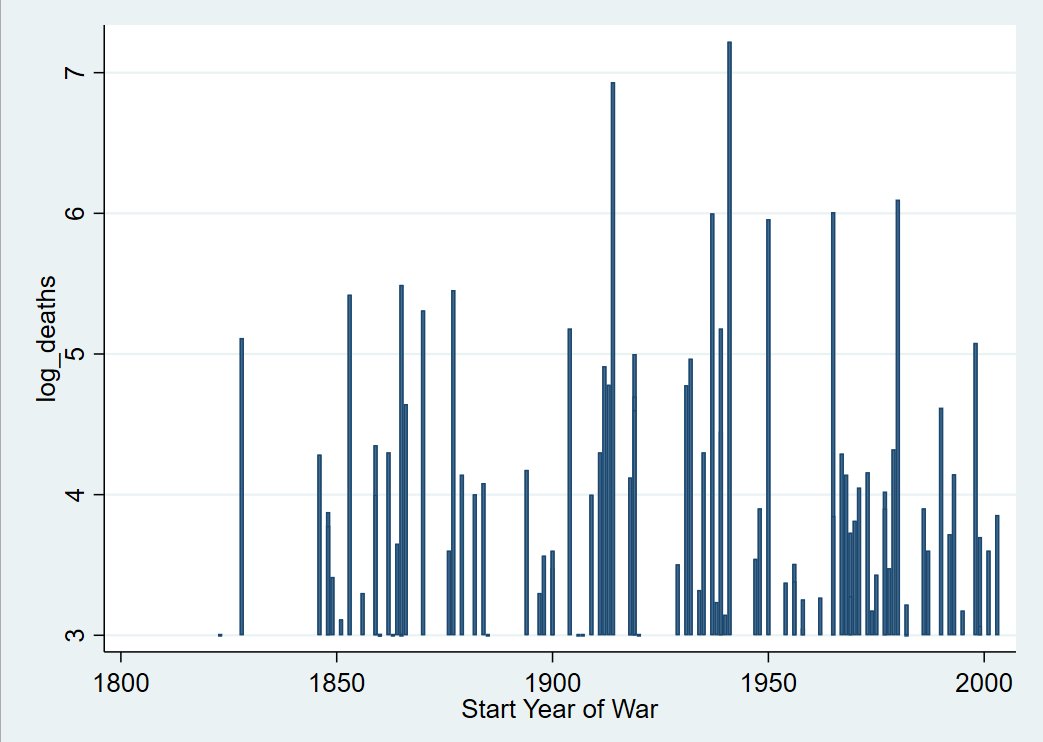👇is a summary


Indeed, one of the first pieces of quantitative security research, by Woods and Baltzly, was a test of the "War is Diminishing" claim.
books.google.com/books?id=eD4uA…
More data are needed = Enter Quincy Wright (covered last week)!
One example is this @PoPpublicsphere symposium on the decline of war (featuring @PageFortna, John J Mearsheimer, & Jack Levy)
cambridge.org/core/journals/…
mitpressjournals.org/doi/10.1162/IS…
For the purposes of the in-class examples, we used the Correlates of War war data
correlatesofwar.org/data-sets/COW-…
For the first graph, we looked at deaths from interstate wars from 1816-2005. The below graph shows the log(battledeaths) for each war, by the year that the war began.

Hence, they said there didn't seem to be much of a decline (or rise) in the trend!
But these data show that, at minimum, claims of "war's decline" are probably just a bit exaggerated.
Overall, a very productive class!
(end)
















